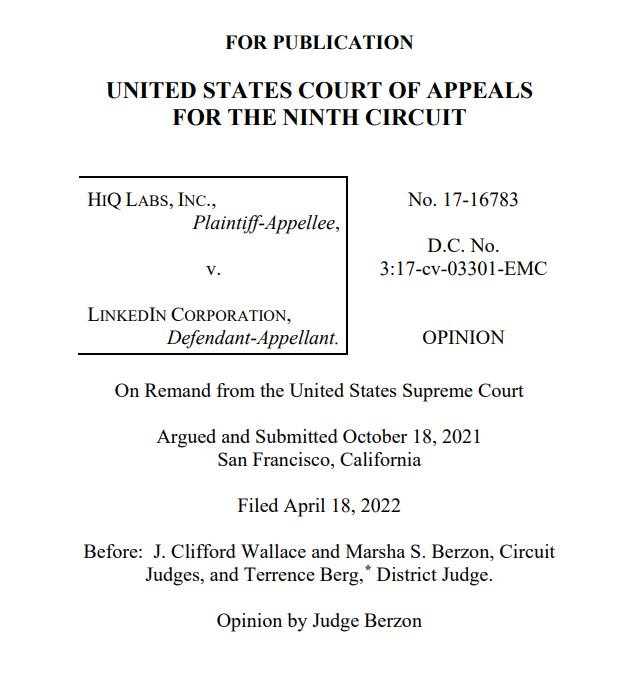The practice of data scraping has always been the subject of controversy, because although data on websites are considered public, thousands of users and specialists believe that there should be better restrictions against this information collection method. Nonetheless, authorities seem to have a clear view about it; this week, the U.S. Court of Appeals for the Ninth Circuit ruled that LinkedIn has no argument to stop its competitor, hiQ Labs, from extracting public data from LinkedIn users.
In 2017, LinkedIn demanded that hiQ stop collecting LinkedIn data, starting to block hiQ’s access and its ability to extract data from public profiles. At the time, LinkedIn argued that hiQ’s actions violated several laws, primarily the Computer Fraud and Abuse Act (CFAA) and LinkedIn’s own terms of use.
In this regard, the courts in the U.S. determined that LinkedIn could not block access to the public data of its users for HiQ; in her ruling, Circuit Judge Marsha Berzon said, “There is little evidence that LinkedIn users who choose to make their profiles public maintain an expectation of privacy with respect to the information they post.”

For LinkedIn, this decision was not enough to desist from their plans, so they took the case to the U.S. Supreme Court. However, in a previous case the Court had already decided not to penalize the extraction of publicly available information on Internet platforms, so the LinkedIn case was returned to the circuit court.
Upon receiving the case back, the Ninth Circuit ruled that the concept of access authorization will not apply to public websites. Not only can this prove useful for companies like hiQ, but it will also ensure access to relevant sources of information for journalists, researchers and companies for legitimate purposes.
Despite all the setbacks, LinkedIn doesn’t seem to have given up. In a statement, spokesman Greg Snapper said: “We are disappointed with the court’s decision. This is a preliminary decision and the case is far from over.” Snapper says LinkedIn will continue to fight to protect its users’ information.
To learn more about information security risks, malware variants, vulnerabilities and information technologies, feel free to access the International Institute of Cyber Security (IICS) websites.

He is a well-known expert in mobile security and malware analysis. He studied Computer Science at NYU and started working as a cyber security analyst in 2003. He is actively working as an anti-malware expert. He also worked for security companies like Kaspersky Lab. His everyday job includes researching about new malware and cyber security incidents. Also he has deep level of knowledge in mobile security and mobile vulnerabilities.











